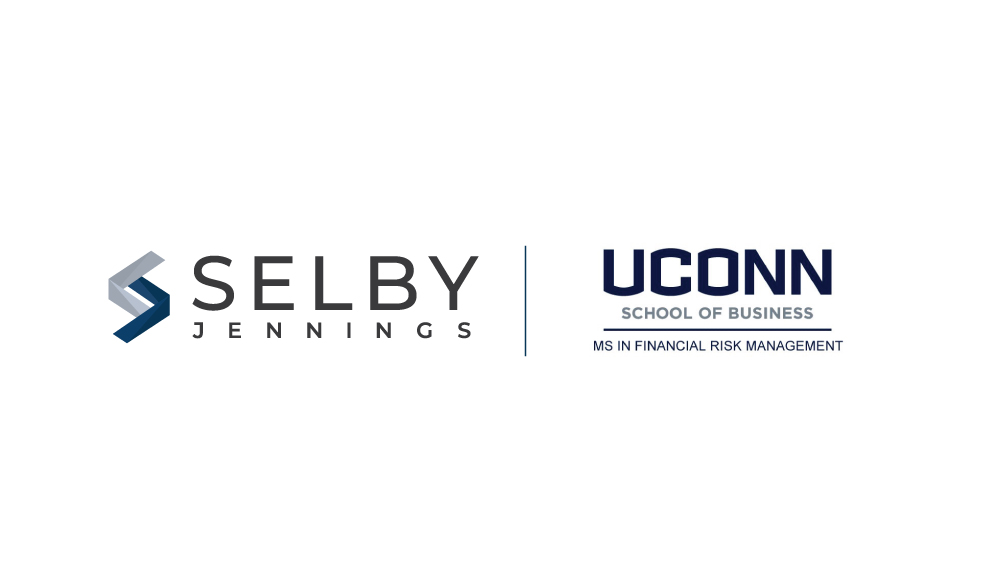Selby Jennings has founded a great relationship with the UConn School of Business - Financial Risk Management Program to help their students better understand the career paths and opportunities in Risk Management.
Recently our specialist recruiters,Charlie Vaca, Principal Consultant - Risk and Audit Lead and Matthew Stehl, Senior Recruitment Consultant - Risk, Analytics & Decision Science, had the opportunity to share industry and career insights with students to help them navigate the current hiring environment. Our team explored the career paths available and how broad the opportunities are in this particular space. This gave students a clearer picture of how they can achieve their career goals by broadening their career views in Risk Management. This also allowed them to understand in more context - what firms and hiring managers deem important while hiring during this time. These insights can help Risk Management students properly apply themselves and successfully enter a highly competitive industry.
To learn more about risk management, take a look at the future of risk management, and to see what Risk Management vacancies we have, click here.
Gaining an edge in the risk space
We've conducted career panels in the past for other universities, but this one was particularly unique given the state of the job market. Naturally, the students and future job seekers were very curious on how to navigate the current hiring market, and what they could do specifically to gain an edge. We used this opportunity to speak with the UConn FRM students on how to differentiate themselves during the modern interview process.
We spoke at length about the need to be coachable given the current work from home environment, certifications and licenses to pursue while looking for jobs simultaneously, and the optimal way to depict their experience and track record on a resume. Hopefully, the pointers and advice we offered the students will lead to a higher overall placement rate for the FRM graduate program.
It is no secret that COVID-19 has made the industry adapt to a new status quo and with that comes new skills that are in demand. With the industry institutions having to adapts to a work from home environment, it has changed the way the organizations socialize, train, and manage talent. Thus making candidates who are coachable, independent, and strong communicators stand out more and more.
Increasing your chances of finding a career opportunity after graduation
The current job environment is not ideal for students recently completing graduation degrees, but it is definitely not a dead end. Our clients within financial services are still looking for the next future leaders to bring into their respective organizations. Additionally, based on our networking opportunity with the FRM class, students are hungry to enter the market as well. It is important to be organized and keep record of where you've applied, make sure that your CV accurately depicts achievements or positive results from previous internships or graduate projects, and be proactive and continue to network.
We are still a ways away from in-person networking events, but students should use the platforms that are available to them and continue building out their networks though LinkedIn, Alumni boards, etc. It will not only increase your likelihood of finding employment now, but it will give you the ability to establish fruitful relationships that will help progress your career for years to come.
For more useful tips around building your CV, take a look at12 top CV tips
Certifications and licenses to pursue
Specifically, for students interested in pursuing careers in credit risk management, we definitely recommend pursuing certifications in SAS programming, AWS Machine Learning, or anything in the realm of data analysis. Credit risk is becoming an increasingly technical business line, so proficiency with technical languages like SAS or exposure to innovative concepts like machine learning will surely add value to your profile.
For candidates pursuing careers in market or investment risk, we recommend increasing your exposure to Python and SQL. Risk Analysts are expected to manage significantly large data sets and SQL queries, so expanding your knowledge with SQL is pivotal. There are a number of 6 week certification courses that you can take, including those offered by Brainstation, Linkedin, Cornell, etc. Overall, getting technical certifications before achieving your first full time role will show hiring managers that you require less of a learning curve than others, which is extremely important considering the current remote onboarding process.
Doing these types of events is always an honor and great opportunity to get some insight into the minds of the incoming talent pool. We look forward to connecting with more incoming talent at these events and being a valuable resources to UConn FRM grad program to help their students compete in this uncertain environment.
To learn more about current job market trends in Risk Management, check out our free Risk Market Update 2020.
If you are looking for your next opportunity and would like support in your job search, submit your resume below.

